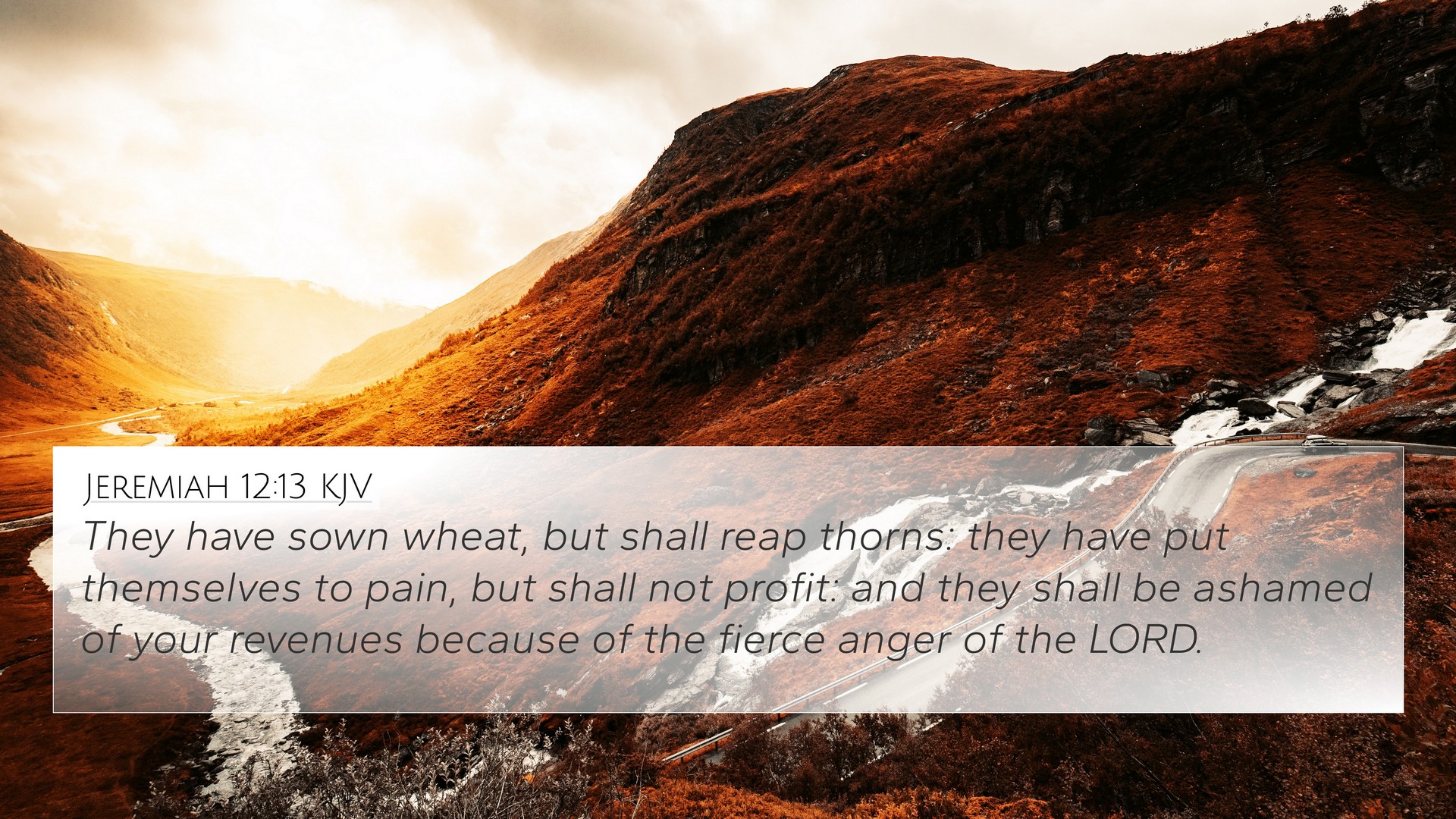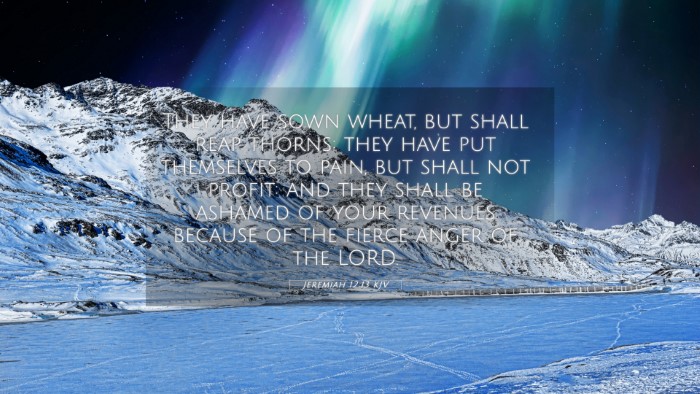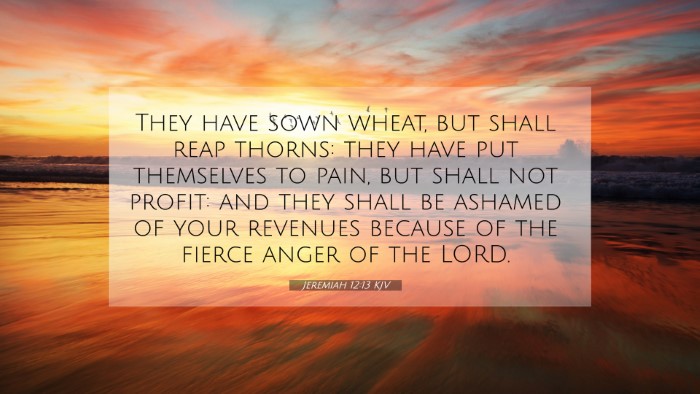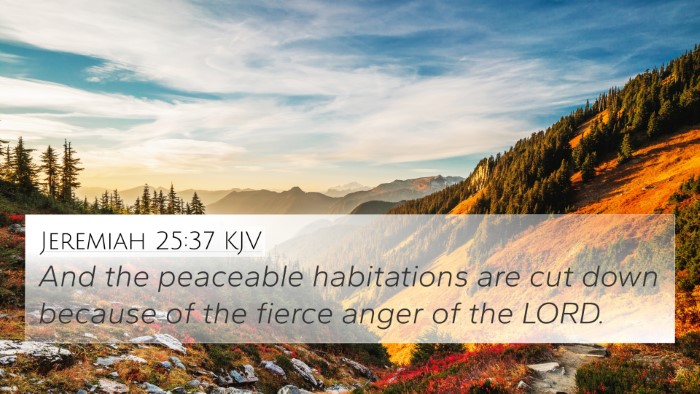This section features a detailed cross-reference designed to enrich your understanding of the Scriptures.
Below, you will find carefully selected verses that echo the themes and teachings related to Jeremiah 12:13 KJV. Click on any image to explore detailed analyses of related Bible verses and uncover deeper theological insights.
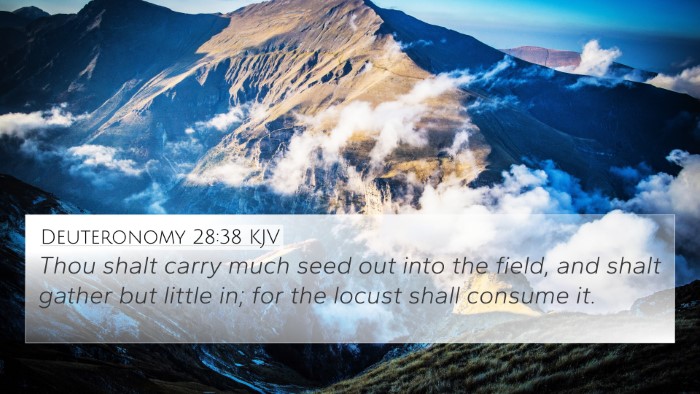 Deuteronomy 28:38 (KJV) »
Deuteronomy 28:38 (KJV) »
Thou shalt carry much seed out into the field, and shalt gather but little in; for the locust shall consume it.
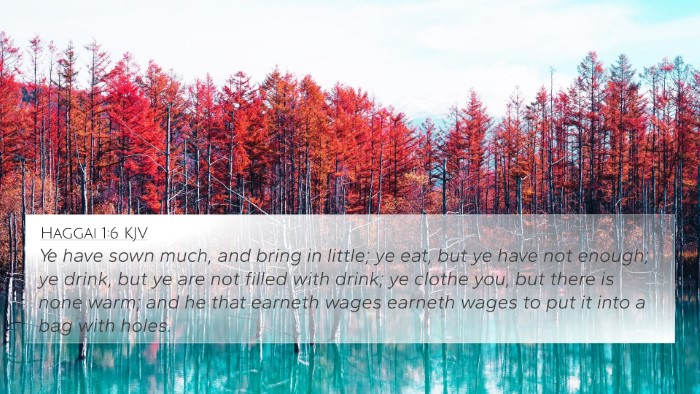 Haggai 1:6 (KJV) »
Haggai 1:6 (KJV) »
Ye have sown much, and bring in little; ye eat, but ye have not enough; ye drink, but ye are not filled with drink; ye clothe you, but there is none warm; and he that earneth wages earneth wages to put it into a bag with holes.
 Micah 6:15 (KJV) »
Micah 6:15 (KJV) »
Thou shalt sow, but thou shalt not reap; thou shalt tread the olives, but thou shalt not anoint thee with oil; and sweet wine, but shalt not drink wine.
 Leviticus 26:16 (KJV) »
Leviticus 26:16 (KJV) »
I also will do this unto you; I will even appoint over you terror, consumption, and the burning ague, that shall consume the eyes, and cause sorrow of heart: and ye shall sow your seed in vain, for your enemies shall eat it.
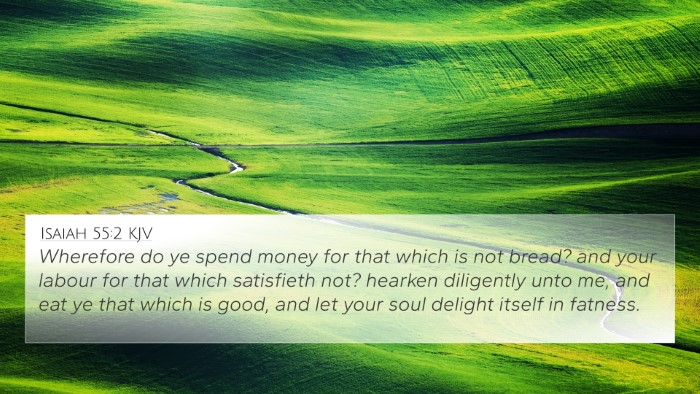 Isaiah 55:2 (KJV) »
Isaiah 55:2 (KJV) »
Wherefore do ye spend money for that which is not bread? and your labour for that which satisfieth not? hearken diligently unto me, and eat ye that which is good, and let your soul delight itself in fatness.
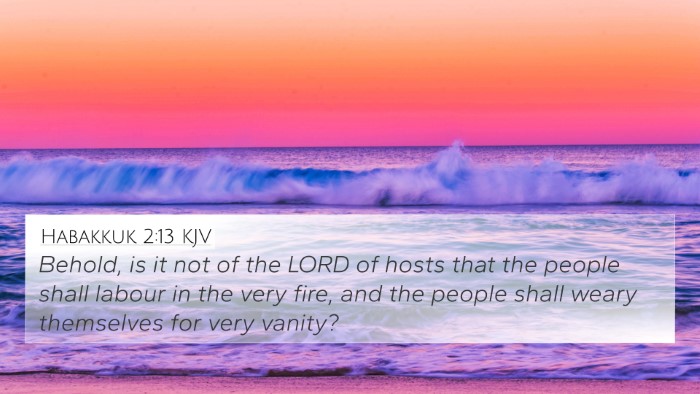 Habakkuk 2:13 (KJV) »
Habakkuk 2:13 (KJV) »
Behold, is it not of the LORD of hosts that the people shall labour in the very fire, and the people shall weary themselves for very vanity?
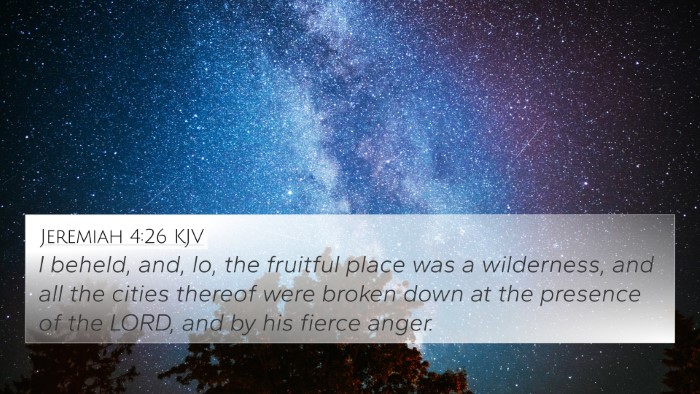 Jeremiah 4:26 (KJV) »
Jeremiah 4:26 (KJV) »
I beheld, and, lo, the fruitful place was a wilderness, and all the cities thereof were broken down at the presence of the LORD, and by his fierce anger.
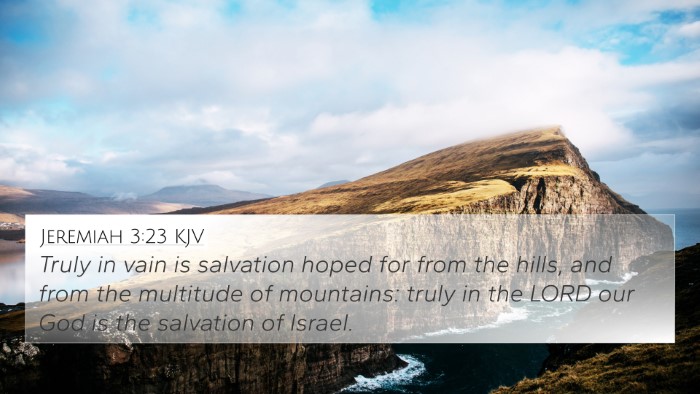 Jeremiah 3:23 (KJV) »
Jeremiah 3:23 (KJV) »
Truly in vain is salvation hoped for from the hills, and from the multitude of mountains: truly in the LORD our God is the salvation of Israel.
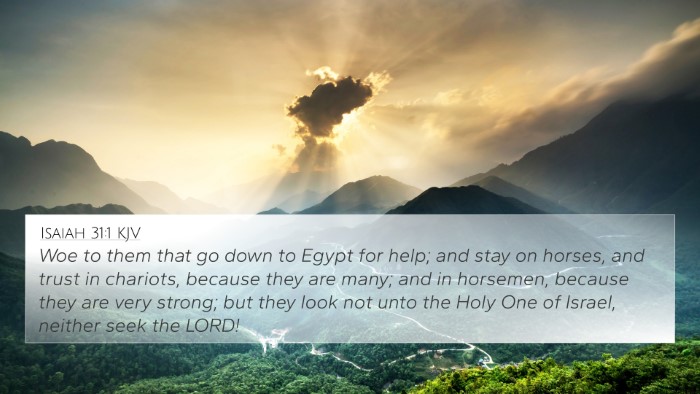 Isaiah 31:1 (KJV) »
Isaiah 31:1 (KJV) »
Woe to them that go down to Egypt for help; and stay on horses, and trust in chariots, because they are many; and in horsemen, because they are very strong; but they look not unto the Holy One of Israel, neither seek the LORD!
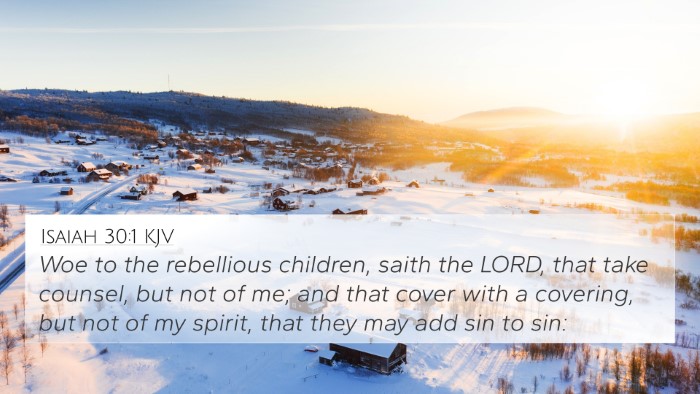 Isaiah 30:1 (KJV) »
Isaiah 30:1 (KJV) »
Woe to the rebellious children, saith the LORD, that take counsel, but not of me; and that cover with a covering, but not of my spirit, that they may add sin to sin:
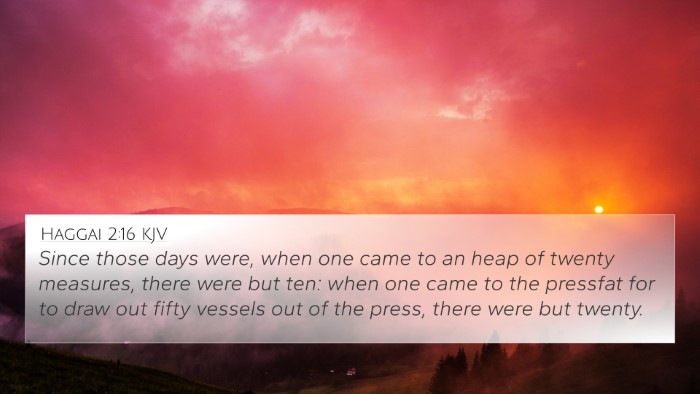 Haggai 2:16 (KJV) »
Haggai 2:16 (KJV) »
Since those days were, when one came to an heap of twenty measures, there were but ten: when one came to the pressfat for to draw out fifty vessels out of the press, there were but twenty.
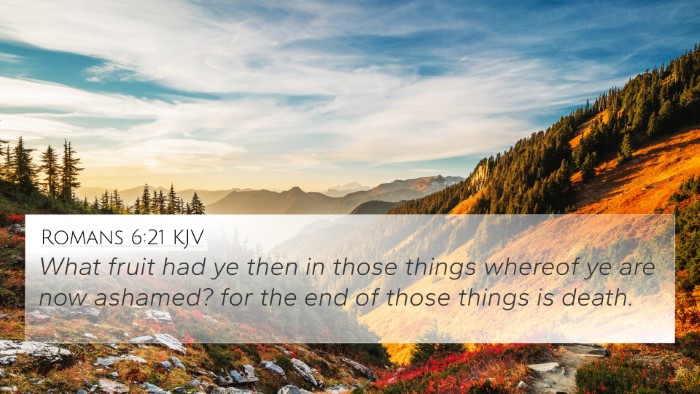 Romans 6:21 (KJV) »
Romans 6:21 (KJV) »
What fruit had ye then in those things whereof ye are now ashamed? for the end of those things is death.
